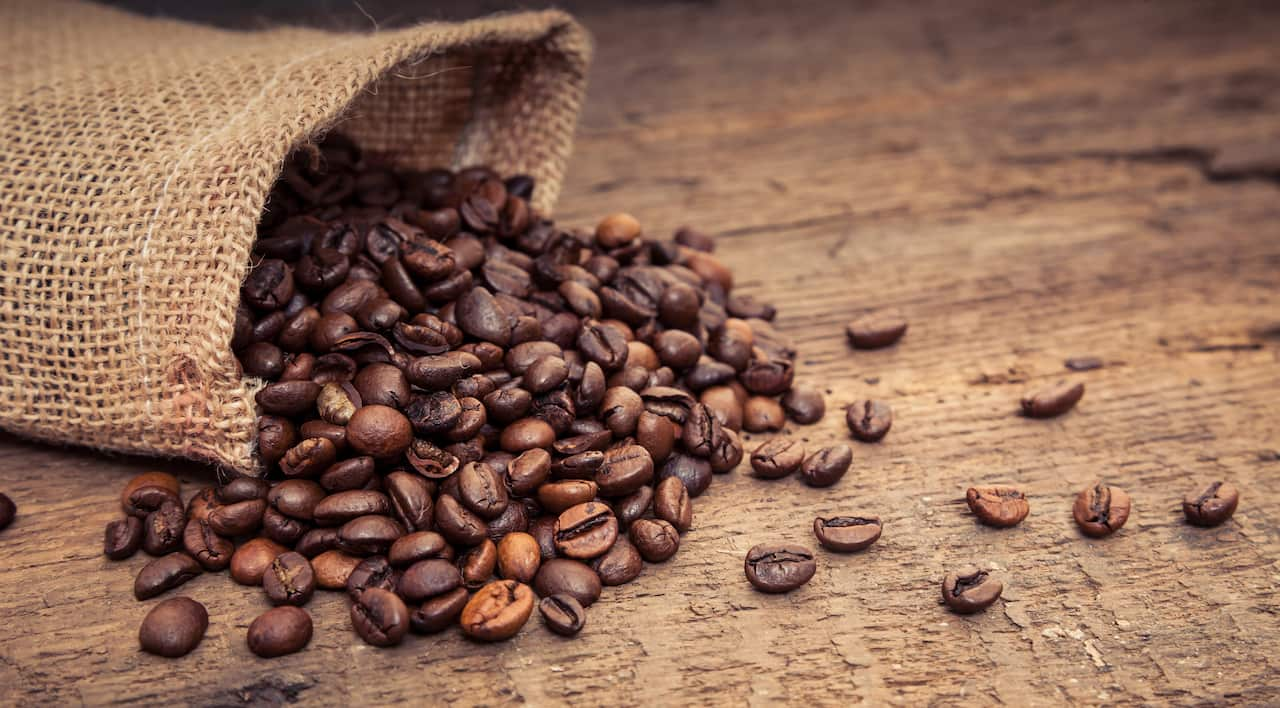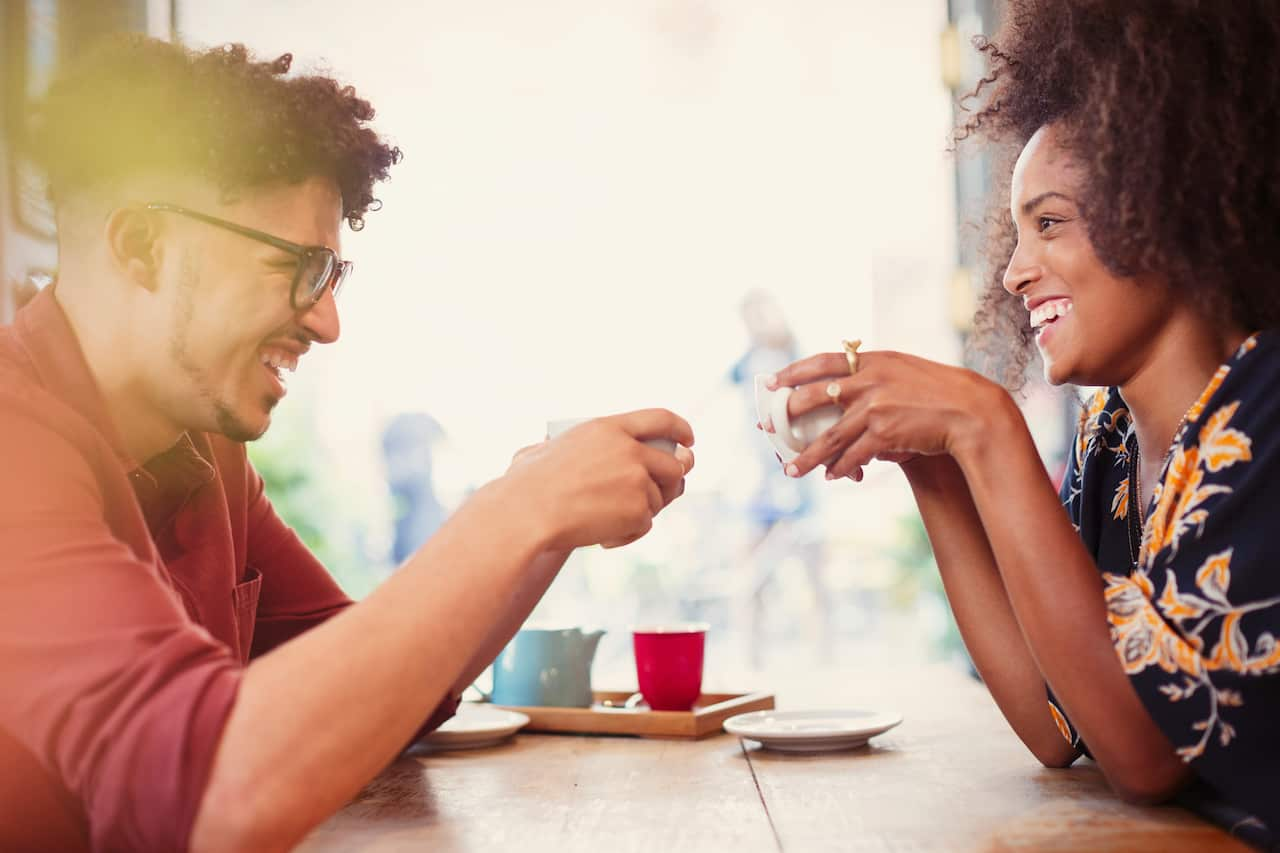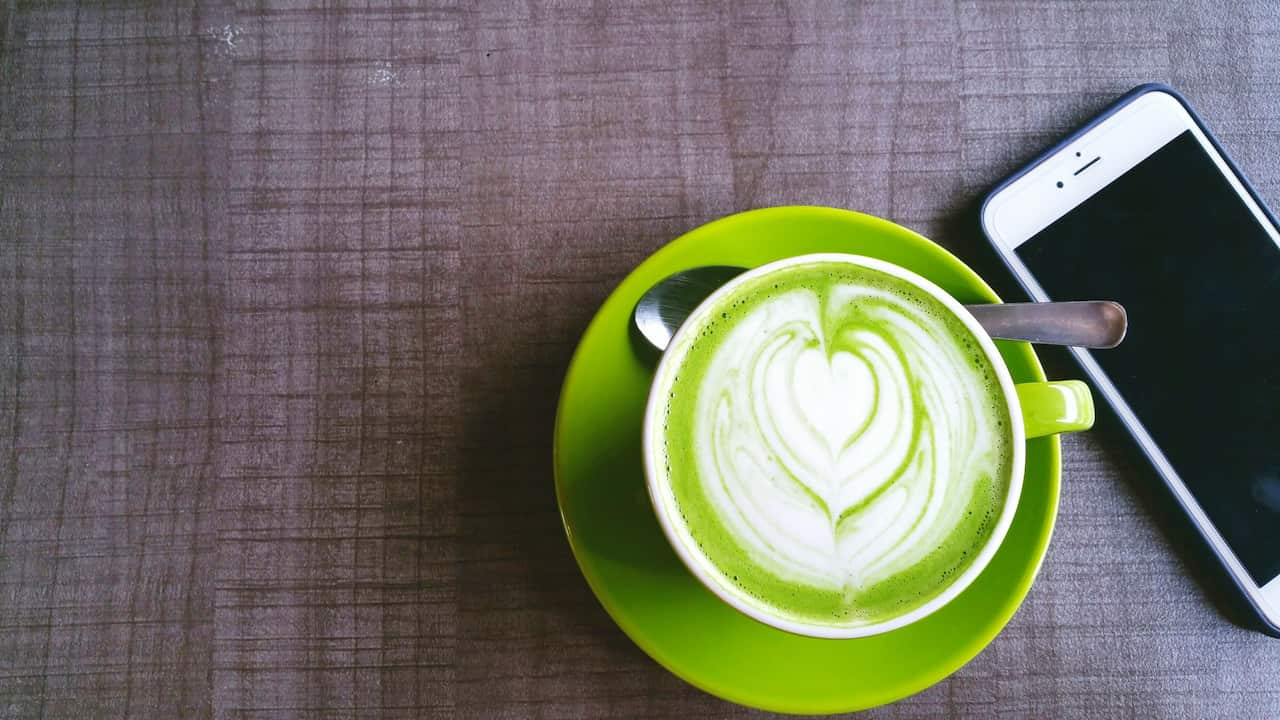There’s a whole army of people who just can’t function until that morning cup of Joe is in their hands. But for all its cognitive perks, caffeinated coffee may not be right for everyone. So is it worth turning to a decaffeinated alternative? And are some kinds of decaf better than others?
The average 250ml flat white contains
of caffeine. According to Dr Russell Keast, a professor of advanced sensory science at Deakin University, it only takes 50 mg to see an increase in alertness and better motor activity.
"But it's really once you hit that 400 mg mark, you start to see those adverse effects," he tells SBS, "that can bring bring on caffeine toxicity, headaches, light-headedness and other conditions."
The solution might seem simple: switch to decaf. But is that, in fact, the healthier option?
It's a question tackled in the latest season of Trust Me I'm A Doctor (Mondays 7.30pm on SBS). "There have been reports in the media that some of the chemicals used to decaffeinate coffee are bad for us," Dr Chris van Tulleken says. But as he explains, it's not the only thing to keep in mind when deciding if you should drink decaf - and if so, what sort.
How is decaf coffee made?
Most decaffeination methods use water, chemical solvents, or a combination of the two, when extracting caffeine from raw unroasted beans. There are other innovative methods coming to the fore, too, like carbon dioxide and charcoal extraction.
Water decaffeination process
The water extraction method is the most economic, according to Dr Keast. It involves soaking the beans in high pressure, extremely hot water for 8 or so hours. In the process, most of the caffeine is removed.
"Then they take this water, remove it from the actual beans and then selectively remove the caffeine through a filter which catches the caffeine but still allows the other flavour through," he explains. "And then that caffeine-free water with the flavour compounds is the water they'll use to extract the coffee from the beans later in the process."
Wholesale coffee manufacturer Toby's Estate uses a variant of the water extraction process called the "Columbian mountain water process".
"It's similar to the Swiss water process, and extracts 99 per cent of the caffeine from the beans," national sales manager Nic Naso tells SBS. "There is a fair bit of water wastage, unfortunately."
Chemical extraction process
The chemical solvent method has been criticised for using compounds that are in fact toxic. It's the reason why some manufacturers, like Toby's Estate, refuse to employ this method. However, Dr Keast says this process of extraction is a safe one.
"One of the solvents used is an ethyl acetate. It's just a common fermentation product or a product you'd find in various fruits or fermented foods. And if solvents are used, they will be also removed during the processing," he says.
Dr Chris van Tulleken comes to much the same conclusion in Trust Me I'm A Doctor:
Carbon dioxide process
Dr Keast explains this is a more targeted process. Carbon dioxide can be used to pinpoint and extract any desired chemical compound, with minimal water wastage and without the use of potentially harmful solvents.
It is, however, a very expensive process, which is why it hasn't been widely implemented. Toby's Estate says they have yet to explore the carbon dioxide extraction process but are open to it.
"It's the wastage of coffee and water that I'm not a big fan of," Naso says. "So if there's a better process that we can use, even if it is a little bit more expensive, I'd definitely explore that."


It's all in the beans. (via Getty Images) Source: Getty Images
Does it affect the taste?
Keast and Naso say the difference in taste between most decaf and caffeinated blends is negligible.
What does affect the taste is the origin of the coffee bean, both say.
There are two main sources of bean used to make most coffee - robusta and arabica. Arabica is considered the higher-quality bean.
"Say for example that you took a robusta bean which is a lower quality bean and you put that through the carbon dioxide process, the final product may still not be as good as the arabica water product," says Dr Keast. "So there's so much variation that can come from the raw material."


The difference in taste between decaf and caffeinated coffee is "negligble", according to experts. (via Getty Images) Source: Caiaimage
Is decaf actually caffeine-free?
Actually, probably not.
"Your decaf might not contain any chemical nasties, but you might be surprised to know that it probably does contain some caffiene," Dr Chris van Tulleken says. "So the two-shot decaf latte that you're drinking might contain as much caffeine as a cake of coke."
“No extraction process removes 100 per cent of the caffeine,” says Dr Keast. “But that doesn’t mean there’s no benefit to it.”
The type of bean and the decaffeination process it goes through aren't the only factors that affects a cup of coffee's final caffeine levels. Even the way the coffee decoction is extracted from the roasted bean before consumption has an effect.
"Filter coffee extracts more caffeine from the coffee grounds than, say, an espresso machine," explains Dr Keast.
Toby's Estate claim their decaf coffee is 99 per cent caffeine free. But even so, their decaf coffee is not their best-performing product.
"It only comes up to about 2 per cent of our total coffee sales. But decaf is something we've had for so long I wouldn't think about removing it from our product mix," says Naso.
"Now there are so many non-caffeinated options like chai, matcha, and some teas as well. There's a bit of competition out there for a decaffeinated drink."
 Trust Me I'm A Doctor airs Mondays from 1 January 2018 at 8.30pm on SBS, then watch it on
.
Trust Me I'm A Doctor airs Mondays from 1 January 2018 at 8.30pm on SBS, then watch it on
.

Matcha "green tea" latte is yet another low-caffeine alternative to regular coffee. (via Getty Images) Source: EyeEm











